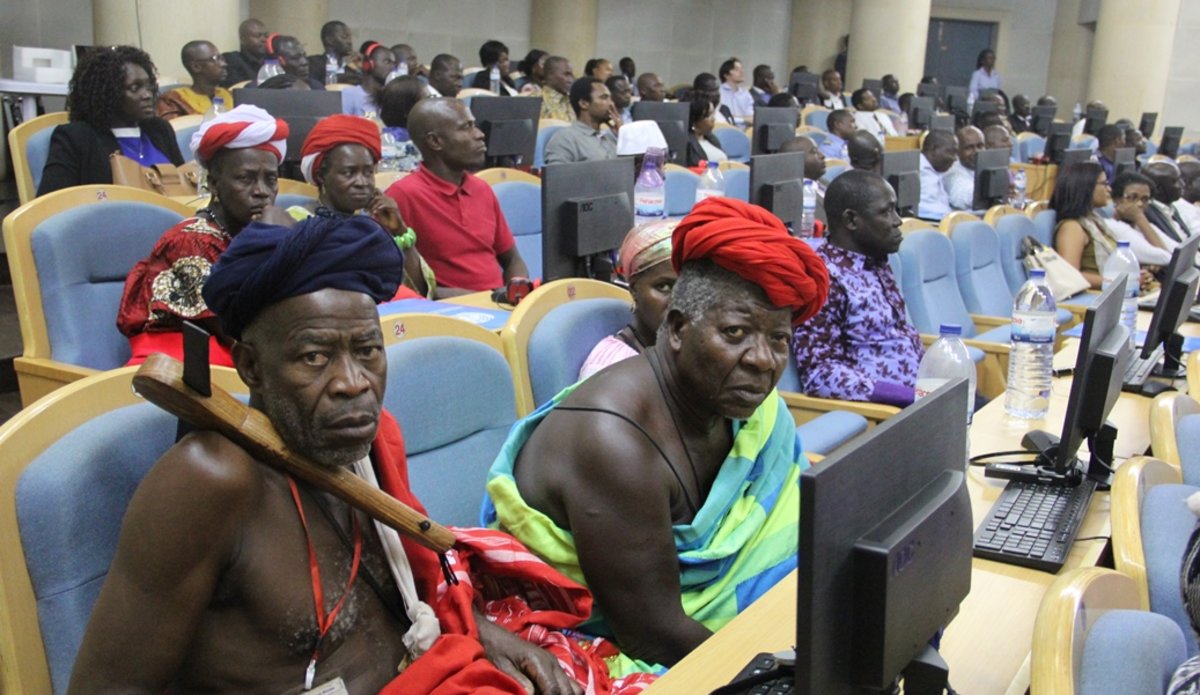Guineans want firm international community to end the political crisis
Identical initiatives have been carried out by civil society organizations, women, and religious and youth, all of them engaged in the effort to end the persistent political-institutional crisis.
At the last meeting of ECOWAS Heads of State on June 4 in Monrovia, Liberia's capital, the member states expressed their deep concern about the persistence of the political and institutional impasse in the country, despite the signing of the Conakry Agreement in October 2016, and took note of the readiness of all parties to dialogue in order to ensure the implementation of this Agreement. They urged the Bissau-Guinean President, José Mário Vaz to comply with the provisions of the Conakry Agreement.
In this regard, the regional organization has extended for a further three months the presence of its military contingent in the country, ECOMIB, to allow the full implementation of the Conakry Agreement.
The United Nations has been supporting all efforts towards stability in Guinea-Bissau. Such efforts include the support of the Peacebuilding Fund, which, in addition to supporting mediation processes, has also become more prominent in supporting priority social peacebuilding projects.
"We currently have three projects ongoing in Guinea Bissau: registration of newborns in partnership with UNICEF, this is important because it gives identity, and people can access services and because if we do not know how many people are born, we will not know how many schools will need to be built", explained Janet Murdock, from the Fund’s secretariat.
“The second project is about dialogue, which has two strands, support the Conakry process and support the Organizing Committee of the National Conference, which is working towards setting up a mechanism for national reconciliation.”, concluded Janet Murdock
For the Bissau-Guinean citizens, the impact of these efforts is not always visible and clear. They have different views on what the international community should do to end the political crisis, but all want the international community to be "stricter with politicians."
"The only solution to this problem is to hand over to Guinea Bissau in the hands of the United Nations," said Fatoumata of Sao Domingos. Armando, in the same city, argues that "the international community must assume its responsibility, since Guinea-Bissau is part of this organization, the UN use a heavy hand with the Guinean politicians, as they have done in other countries, because who is suffering with this crisis is the population ".
Fernando, in Buba, in the south of the country, considers that "the international community is being slow in decision-making, because it is clear that democracy is at stake, the international community should not let this situation reach such point, we should go for general elections, that is the right solution.", he said.
"I call on the international community to enforce the Conakry Agreement, they must be tougher and force politicians to comply with this agreement," said Filomena in Bafatá, East of the country. Carlos, also from Bafatá, considers that the partners are neither articulated nor truly committed:" we can say that ECOWAS, the United Nations issue several communiqués and resolutions but I noticed that there is no engagement, it seems that each organization stands in its own way and this has contributed more to the escalation the crisis, the P5 should have a unique forum and a unique resolution and bring together the parties involved, because the Conacry Agreement is, in my opinion, outdated. "
The president of the National Youth Council, Aissatu Forbs Djaló, regrets that youth has been excluded in all mediation processes since the beginning of the crisis. "Young people are affected by the crisis and may show another version of this problem. The United Nations, ECOWAS and the international community in general should include young people in the mediation process because youth play an important role in sensitizing communities and representing the population.", said the youth leader.
Also, women, driven by their interest and duty to participate in mediation efforts to end the crisis, and, as a way to be able to be part of decision-making centers, have recently created a platform that groups several organizations for peacebuilding in Guinea-Bissau.
Rui Jorge Semedo, an associate researcher at INEP, said that in order for the crisis to end "it is necessary to make Bissau-Guineans believe in the values of democracy, with strong institutions capable of enforcing the law."
 UN
UN





